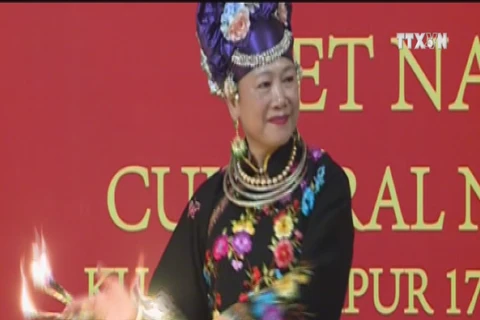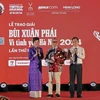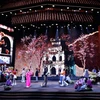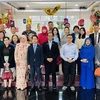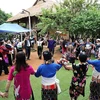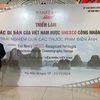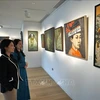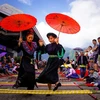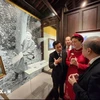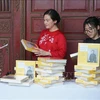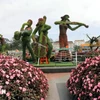New Delhi (VNA) – A festival highlighting the worship of Mother Goddess in Vietnam was held on February 22 at India Council for Cultural Relations (ICCR) in New Delhi, India.
It was part of a series of activities jointly held by the Vietnamese Embassy in India and ICCR to celebrate the 45th anniversary of Vietnam-India diplomatic ties (January 7, 1972 – 2017), 10 years of the two countries’ strategic partnership (July 2007 – 2017) and one year of their comprehensive strategic partnership (September 2016 – 2017).
The worship of Mother Goddess can be considered a live museum which preserves the history and culture of the Vietnamese people, Vietnamese Ambassador to India Ton Sinh Thanh said at the opening ceremony.
He expressed his hope that Indian and international audiences will gain a deeper insight into the Vietnamese culture through the rituals of the worship, which are performances combining traditional costumes and folk music.
The festival will travel to the Exhibition Center and Shopping Mall Dilli Haat INA in Guwahati city on February 23, Assam State in Northeastern India on February 25 and Kolkata city in Western Bengal State, Eastern India on February 27.
The practice related to the Vietnamese belief in Mother Goddesses of the Three Realms was recognised by UNESCO as part of the intangible cultural heritage of humanity on December 1, 2016.
The belief in Mother Goddess worship reflects people’s desire for health, wealth and fortune.
The practitioners are comprised of temple guardians, ritual priests, spirit mediums, mediums’ assistants, musicians who perform the songs for the spirits, disciples and lay adherents who share the same beliefs in the spiritual power, supernatural strength and protection of the Mother Goddess spirit pantheon. All of these practitioners form groups who worship together, take part in traditional festivals and perform spirit possession rituals at temples and palaces dedicated to Mother Goddesses.
Vietnam is already home to several cultural practices inscribed as world intangible cultural heritages, including Nha Nhac (royal court music), the Space of Gong Culture in the Central Highlands, Quan Ho (love duet singing), Ca tru (ceremonial singing), Giong Festival, Xoan singing and Hung King worshipping rituals, among others./.
VNA



